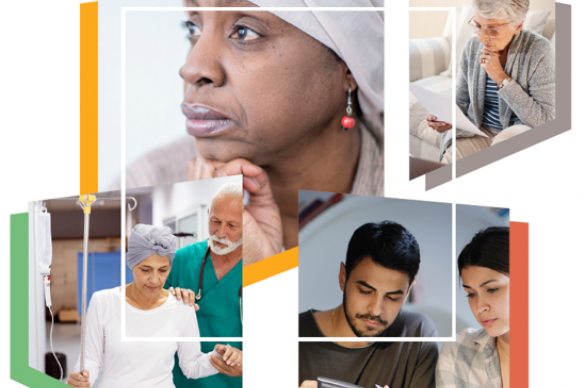The public health and economic crisis resulting from the COVID-19 pandemic has transformed nearly every facet of our society including workplaces, home life and health care systems. The toll that it’s taken on our life in such a short time is, frankly, unfathomable. ACS CAN is certainly no exception; from working remotely to rethinking how we influence our legislative agendas, we’ve had to adapt and reinvent the “how” of our cancer advocacy mission like never before.
It’s true that our advocacy work looks different during this crisis. At this point in time – and likely into the immediate future – having advocates march into the halls of Congress and state capitols nationwide to lobby in person, can’t take place. However, our mission continues with new approaches. Our advocacy voice is strong as we continue to articulate the need for sustained cancer research funding via video-enabled meetings. While our volunteers have in the past physically collected petitions to protect funding for breast and cervical cancer screening programs at Relay For Life events, now they collect electronic signatures through a digital campaign. But what remains entirely unchanged is our commitment to ensuring the voices of cancer patients and survivors are heard, loud and clear, by elected officials and policymakers.
We know that as this crisis endures, we won’t stop advocating on behalf of cancer patients, survivors and their loved ones. The question at hand is, during this time of immense uncertainty, what are our highest priorities for public policy interventions to ease the increased burden of those in the fight while navigating the pandemic?
To answer this question, we asked those who have been diagnosed with cancer within the last five years so we can hear of their challenges directly.
ACS CAN launched our Survivor Views initiative in June 2019, with the intention of promoting the experiences and feedback of cancer survivors in cancer-related policymaking. By establishing a national panel of more than 3,000 cancer survivors who could regularly share their opinions and personal experiences, we’re better positioned to represent our family members, friends, colleagues and community members who are impacted by this disease. That’s at the core of who we are and what we do: ACS CAN represents the more than 16.9 million people with a history of cancer when we engage with elected officials nationwide. So it’s only right that we learn directly from those impacted by cancer through their stories and experiences.
We carry that responsibility with us as we charge forward together through this pandemic, and it’s what drove us to launch the fifth survey to our Survivor Views cohort with questions focused on respondents’ ability to access and afford health care as a result of the COVID-19 pandemic. The survey findings make clear that cancer patients are finding it challenging to get necessary care right now, and many are experiencing significant financial stress to afford care in the wake of an economic downturn. Reduced work hours and lost jobs as a result of the pandemic have the potential to impact both affordability and access to health insurance, a critical factor in a cancer diagnosis. Many are reporting indefinite delays in their care or treatment plans, including provider visits, imaging procedures and physical therapy.
These results only further illuminate the urgent need for federal and state lawmakers to take swift action on policies proven to help increase access to affordable, comprehensive health care. Since the beginning of this pandemic, ACS CAN has strongly advocated for provisions like increased funding for Medicaid and creating a special enrollment period for health plans under the Affordable Care Act, which would help alleviate some of the serious threats cancer patients and survivors face right now.
Survivor Views has allowed us to leverage concrete data and feedback directly from cancer patients and survivors to inform our advocacy agenda. During a time of great uncertainty, this survey will allow us to build a roadmap for our cancer advocacy during an unprecedented moment for our nation. I have no doubt ACS CAN volunteers and staff, as well as our broader cancer community, will keep adapting and fine-tuning our approach to advocacy to ensure the voices of those we serve are kept front and center.

